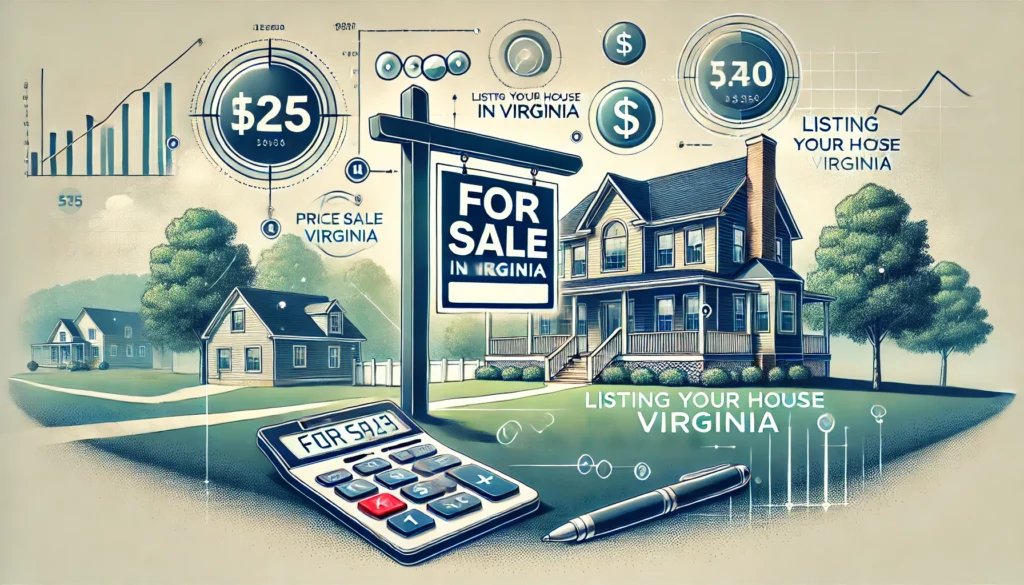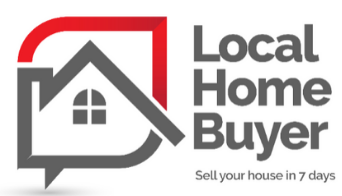How Much Will Listing Your House Really Cost in Virginia?

Introduction
If you’re reading this, you’re likely considering selling your house in Virginia, and you’ve come across the idea of listing with an agent. Naturally, you’re wondering about the true cost of this option. It’s understandable. You want to make the right decision, ensuring that the process is financially worthwhile. Selling a home is a major life event, and the costs can be overwhelming. As a motivated seller, you might be trying to weigh your options between listing with an agent or selling directly for cash, and the financial aspects are probably one of your top concerns.
You’ve probably heard the term “closing costs” or “commissions” thrown around, but what do these really mean for you? You want to know exactly how much of your sale proceeds will be taken up by these costs and how much you’ll actually walk away with. Will your hard-earned equity be chipped away at by hidden fees or long delays? What are the costs involved, and how do they compare to other options, such as selling your home to an investor?
This blog will break down all the costs associated with listing your house in Virginia. It will help you understand not only what you can expect to pay but also how these expenses impact your bottom line. We’ll also explore the potential hidden costs of listing, so you can make a fully informed decision about whether selling to a cash buyer might be a better, more financially sound option for you.
How Much Does It Really Cost to List Your House in Virginia?
Selling a home can be an exciting yet overwhelming experience, especially when you’re considering the costs involved in listing with a real estate agent in Virginia. The first thing you need to understand is that listing a property isn’t just about waiting for the right buyer to come along. There are several fees and expenses to consider, and understanding these costs is crucial to making the best decision for your situation.
One of the first costs you’ll encounter when listing your home is the real estate agent commission. In Virginia, this commission typically ranges from 5% to 6% of the sale price of the home, though this can vary depending on the agent and the market. For example, if you’re selling a $300,000 home, you could be paying as much as $18,000 in agent commissions alone. This amount will typically be split between the listing agent and the buyer’s agent, meaning that your portion will likely be about $9,000 to $12,000.
Additionally, when listing your home, you’ll need to consider closing costs. These costs can add up quickly and are usually in the range of 2% to 5% of the home’s sale price. These closing costs typically include:
- Title insurance: Required to protect the buyer and lender in case there are any issues with the title.
- Escrow fees: Charges for the services provided by the escrow company handling the transaction. Learn more about escrow fees and how they work from this guide.
- Transfer taxes: Virginia charges transfer taxes on real estate transactions, which can be around 0.25% of the sale price.
While some of these fees might be negotiable, they are still significant costs that you’ll need to account for when listing your home. Furthermore, if your home needs any repairs, you may need to invest additional funds to make sure it’s market-ready. Whether it’s fixing up the kitchen or addressing issues in the plumbing, these repairs can often run into thousands of dollars.
For example, if your home needs a new roof or fresh paint, the cost could range from $5,000 to $15,000, depending on the scope of work required. These repair costs are often one of the biggest unexpected expenses when listing with an agent, so make sure to assess the condition of your home and prepare accordingly.
For a better understanding of the financial costs involved in selling your home, be sure to check out our detailed explanation of What are Closing Costs Exactly?, where we dive into the specifics of closing costs and how they affect your sale.
The Hidden Costs of Listing a Home in Virginia
When you list your home with an agent, the costs aren’t always clear up front. In fact, there are several hidden costs that can quickly add up, leaving you with less money than you might have anticipated. For example, home staging is often recommended to make your property more appealing to potential buyers. Staging costs can range from $1,000 to $3,000 for a small home, and even more for larger properties. These costs are not always included in your agent’s fees but are essential if you want to sell at a competitive price.
Beyond staging, you may also need to budget for marketing costs. While some agents may include marketing in their commission, others might charge you separately for services such as professional photography, online listings, or open house events. These marketing efforts can cost anywhere from $500 to $2,000 or more, depending on the scope of the campaign.
Additionally, if your home sits on the market for a long time without selling, you could incur additional expenses in the form of holding costs. These costs include things like your mortgage payments, property taxes, homeowners insurance, utilities, and general upkeep of the property. If you’re paying $1,500 per month in mortgage payments, that could easily add up to $9,000 over the course of a six-month listing. Prolonged market times can really chip away at your equity and increase the financial burden of listing.
To explore further the costs associated with listing your house with an agent, be sure to check out our in-depth post on Costs of Listing With An Agent, where we break down the expenses in detail.
The Costs of Repairs and Renovations Before Listing Your Home
One of the major concerns when listing a home is whether or not you should make repairs or renovations before putting the property on the market. While it’s tempting to simply list the property as-is, making certain upgrades can significantly increase the sale price. However, this decision often involves a delicate balance between the cost of the renovations and the potential return on investment (ROI).
For example, a kitchen remodel can cost anywhere from $10,000 to $50,000, depending on the size of your kitchen and the quality of materials used. A new bathroom remodel could run between $5,000 to $15,000, and landscaping improvements can range from $1,000 to $10,000.
It’s important to carefully evaluate which repairs are necessary and which will provide the most value in terms of resale price. For instance, fixing a leaky roof or replacing outdated appliances could yield a significant ROI, while overly expensive renovations like a high-end kitchen may not add enough value to justify the cost.
In some cases, these repair costs may be unnecessary if you choose to sell your house to an investor who buys homes as-is. This option allows you to avoid the hassle and expense of making repairs, and you’ll get a fair cash offer without having to wait for potential buyers to approve your renovations.
For additional insight into what renovations deliver the best ROI, take a look at this home improvement guide.
The Time Factor: How Long Does It Take to Sell Through an Agent?
Another important factor to consider when listing your home is the time it takes to sell. While some homes sell quickly, many take longer to find the right buyer, especially if you’re in a competitive or slow market. On average, homes listed with agents in Virginia stay on the market for 30 to 60 days. However, if your home requires repairs or is in an area with limited demand, the process could drag on for months.
During this time, you’ll continue to incur holding costs, such as mortgage payments, insurance, and utilities. This is another reason why many sellers are frustrated with the traditional selling process: it takes too long, and the costs continue to add up.
A cash sale, on the other hand, is typically completed in as little as 7 to 14 days, depending on the buyer. There’s no need to wait for financing approval, and you avoid the prolonged holding costs that come with listing your home on the open market.
Why Selling to a Cash Buyer Could Be the Best Option
At this point, you might be wondering, “Are all these costs worth it?” The answer depends on your individual situation, but it’s clear that listing a home with an agent in Virginia can be costly, time-consuming, and stressful. The costs of commissions, repairs, staging, marketing, and holding costs can quickly add up, leaving you with less money than you might have anticipated.
For many sellers, a cash sale offers a simpler and more financially viable solution. By selling to a cash buyer, you can avoid agent commissions, lengthy repairs, and unexpected holding costs. Cash buyers typically buy homes as-is, so you don’t have to invest time or money into fixing up your property. The process is fast and straightforward, allowing you to sell your house quickly and move on with your life without worrying about the hidden costs of listing.
Conclusion
In conclusion, while listing your home with an agent in Virginia may seem like a viable option, the costs involved can quickly add up, leaving you with less than you expected. Between agent commissions, repair costs, staging, marketing fees, and holding costs, selling through an agent can become a lengthy and expensive process.
If you’re looking for a faster, simpler, and more financially efficient way to sell your home, consider selling to Local Home Buyer. With Local Home Buyer, you can avoid all the hidden costs and delays typically associated with traditional listings. We offer cash offers for homes in any condition, meaning you don’t have to worry about repairs or staging. The process is quick and hassle-free, allowing you to move forward without the stress and uncertainty.
If you want to learn more about how a cash sale can benefit you, reach out to us today for a fair, no-obligation offer.
